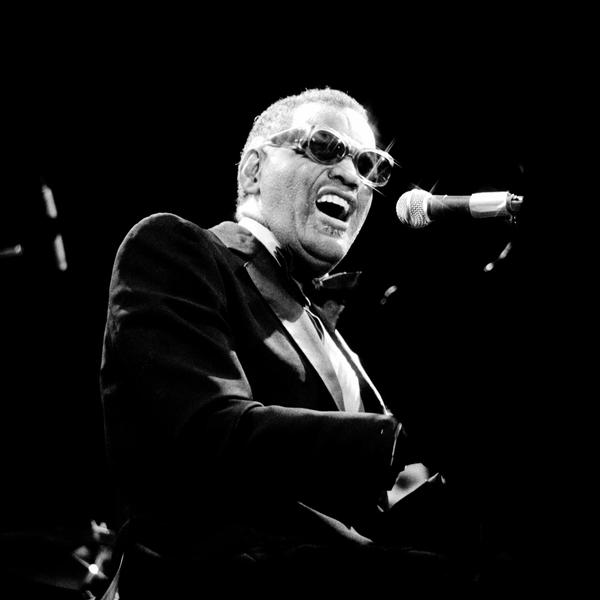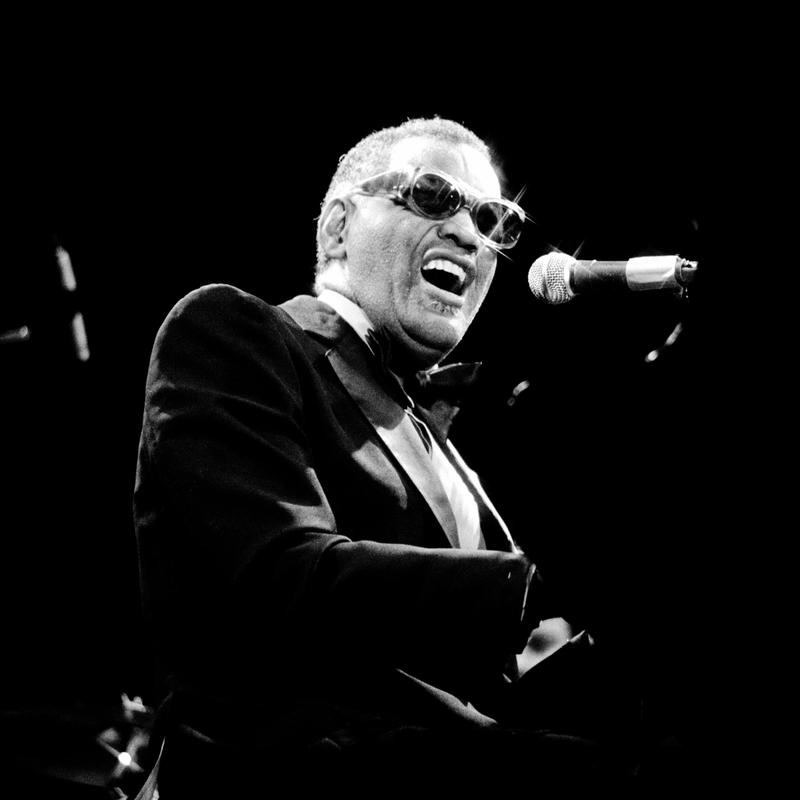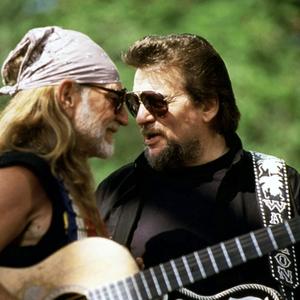




Link copied

Too often, those tagged with the adjective “genius” - especially in the music business - aren’t deserving of the title.
But in Ray Charles’ case, no one dismissed the designation during his life or after. He was simply that good.
37 Grammy nominations, 17 wins and a Grammy Lifetime Achievement Award were just a small example of the accolades the Georgia-bred musician received during his 73 years.
Here are 10 examples of Ray Charles’ finest and most influential country performances - just a sampling of his work in the genre:

Ray Charles
I Can't Stop Loving You
The cheesy backing singers and sugary orchestration can’t detract from Charles’ soulful vocals on this Don Gibson cover, which made it to the top of the pop charts and stayed there for over a month.
Willie Nelson paid the song and Charles the highest of compliments, saying, “With his recording of ‘I Can’t Stop Loving You’, Ray Charles did more for country music than any other artist”.
It’s safe to assume Charles knew the frilly, some may call “white bread”, production was needed to get crossover attention at the time. He was right.
You Don't Know Me
This Cindy Walker / Eddy Arnold tune was a modest pop hit when sung by Jerry Vale in 1956. But Charles infused it with his typical soulful croon and took it to no.2 in the charts as the follow-up to ‘I Can’t Stop Loving You’.
Sure, it starts with those schlocky backup vocals, but as soon as Charles enters, he brings real pathos to the lyrics; “I never knew the art of making love / Though my heart aches for you”. It’s a tune about unrequited love that needed his gospel-inflected voice to fully connect.
You Are My Sunshine
Here’s Ray in full R&B mode hauling this country standard to church. It kicked off the second volume of Modern Sounds…and was the most popular tune on the set, in part due to Bing Crosby’s 1941 recording.
Charles trades lead vocals with the Raeletts’ Margie Hendrix; their call and response interaction injecting the track with the power of its heartbreaking lyrics. The concept of bringing R&B to country, and vice versa, is now taken for granted - but in 1962, it was groundbreaking.
Your Cheatin' Heart
Not quite as big a splash for Charles as the previous selections (it made it to no.29 on the charts), but covering the legendary Hank Williams - the father of country music - was still a gutsy move.
Slowing the tempo allowed the singer to get underneath the “cheatin’” words, and he even takes a short piano solo between the syrupy strings and standard backup chorus.
That Lucky Old Sun
Charles wasn’t the first singer to give this number a whirl - Laverne Baker, Sam Cooke and Aretha Franklin got there first - but this version’s slower, more poignant reading of “I sweat ‘til I’m wrinkled and gray” is pure Ray.
It was later recorded by Willie Nelson in stunning performances, both with and without Leon Russell, who likely used Charles’ take as a blueprint.
Cryin' Time
Charles revisits the fertile Buck Owens catalog (he would record a clutch of other Owens’ tunes like ‘Together Again’ and ‘Don’t Let Her Know’) for this somber ballad. It again was a hit, notching Top 10 on the R&B and pop charts, following a similar sonic template as the Modern Sounds…entries.
He invites Lillian Ford in for harmony vocal, adding a sense that both the man and the woman in the tune are broken-hearted over the end of the relationship. No lesser expert on the song than its writer Owens, who was quoted as saying, “I wish to hell I’d done it like that”.
Crazy Old Soldier
Duets performed well for Ray and he worked closely with a variety of country artists. It was a marriage that worked both ways; icons like Johnny Cash respected Charles and how many doors he opened for them.
Cash leads off this story about a veteran musician’s life ravaged by alcohol, while both singers approach it with a lived-in gravitas which is powerful and direct. The lyric “You’d think I’d give up as many times as I’ve been hit / But like a crazy old soldier / I just don’t know when to quit” was most likely autobiographical for both men.
Seven Spanish Angels
Brother Ray kicks off this pairing with Willie Nelson that topped the country chart in November 1984. Amazingly, it was Charles’s first trip to the top of the country (not pop or R&B) charts.
The song’s story doesn’t make a lot of sense, nor does the blend of Nelson and Charles’ very different voices, but its gospel nature, resounding chorus and the star power of the pair clicked with listeners.
It remains a highlight in both men’s catalogs and is a timeless reminder of how Charles’ presence with about any other singer could create a hit.
Little Hotel Room
It’s another country royalty duet as Charles joins Merle Haggard for this melancholy ballad about the loneliness of life on the road. “There’s no place like home / And it’s lonesome in this little hotel room” they sing as pedal steel weeps in the background.
It’s a sentiment both veterans knew well as they harmonize on the chorus, Mickey Raphael’s harmonica adding to the isolation and overall feeling of frustration any tour-hardened musician feels. These two sound so natural and comfortable with each other, you wish they would have recorded a full album together.
Here We Go Again
Velvet voiced singer Norah Jones would seem an unusual sparring partner for Charles, but this track on his final album finds them both digging into the bluesy country tune with supple ease. “She’ll break my heart again / I’ll play the part again / One more time” they sing, expressing the realization that a relationship isn’t good for either partner, but is still worth saving.
Employing Jones for this 2004 remake nabbed them both Grammys for Record and Best Pop Collaboration of the Year. It was a magnificent way for Charles to close out what is indisputably a remarkable career.
Subscribe and listen to Holler's Best Ray Charles' Country Songs Playlist below:






